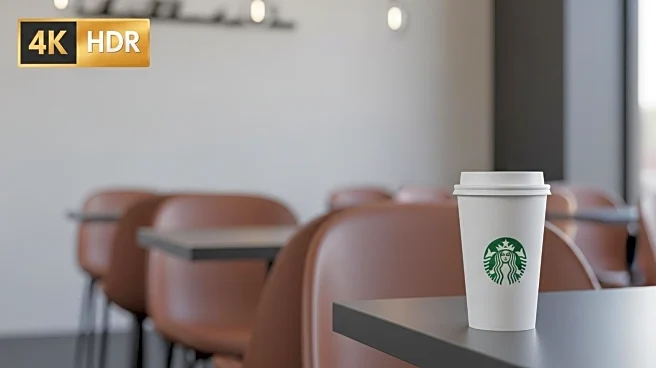What's Happening?
Starbucks has announced the closure of hundreds of its stores across the United States, including several locations in Philadelphia. The closures are set to begin immediately, although the company has not yet released a comprehensive list of the affected stores. One confirmed closure is on Spring Garden Street in Philadelphia. This decision is part of Starbucks' ongoing strategy to optimize its store portfolio and adapt to changing consumer behaviors, which have been influenced by the COVID-19 pandemic and the shift towards online and mobile ordering.
Why It's Important?
The closure of Starbucks stores is significant as it reflects broader trends in the retail and food service industries, where companies are increasingly focusing on digital sales and delivery services. This move could impact local economies, particularly in urban areas like Philadelphia, where Starbucks locations contribute to foot traffic and local business ecosystems. Employees at the affected stores may face job displacement, prompting concerns about unemployment and economic stability in the regions impacted by the closures. Additionally, this decision underscores the challenges faced by brick-and-mortar establishments in adapting to new consumer preferences.
What's Next?
Starbucks is likely to continue evaluating its store locations and may announce further closures or strategic shifts in the future. The company may also increase investment in digital platforms and delivery services to cater to the growing demand for online ordering. Local communities and businesses may need to adapt to the reduced presence of Starbucks, potentially exploring new opportunities for collaboration or alternative business models. Stakeholders, including employees and local governments, may seek clarity on the company's plans and support for those affected by the closures.
Beyond the Headlines
The decision to close stores may have deeper implications for urban planning and community development, as Starbucks locations often serve as social hubs. The closures could lead to changes in neighborhood dynamics and consumer habits, prompting discussions on the role of large corporations in local communities. Additionally, this move may influence other companies in the food and beverage industry to reassess their physical store strategies in favor of digital transformation.










